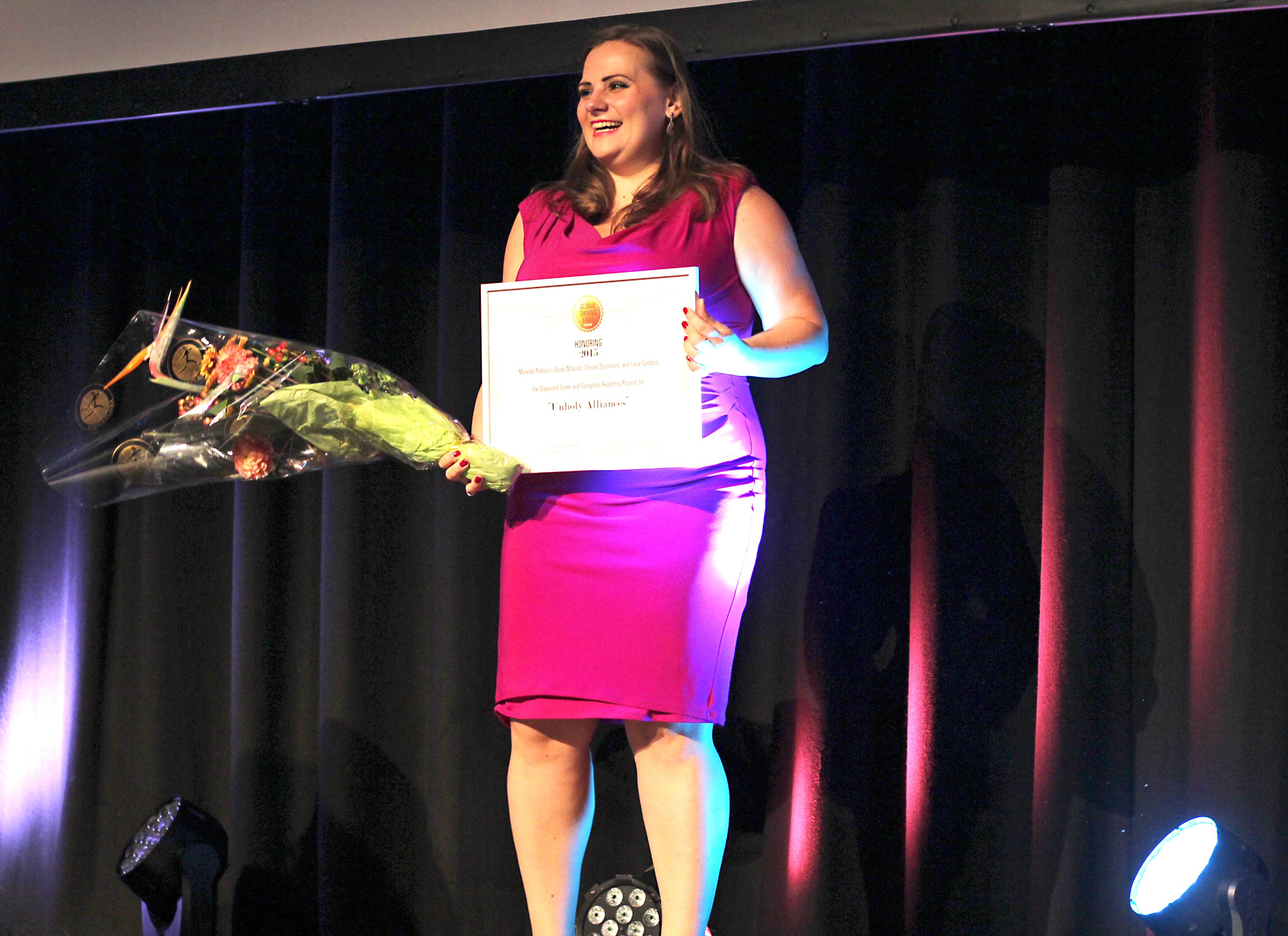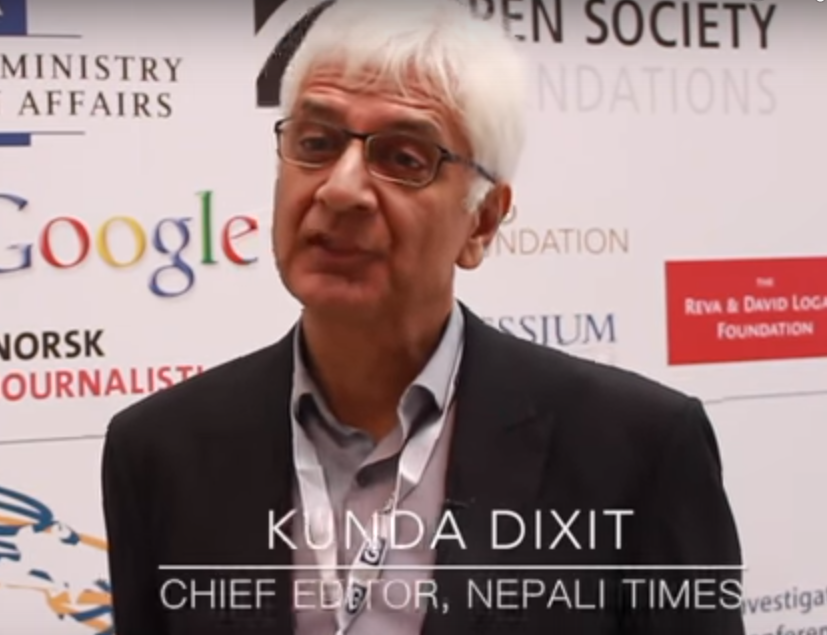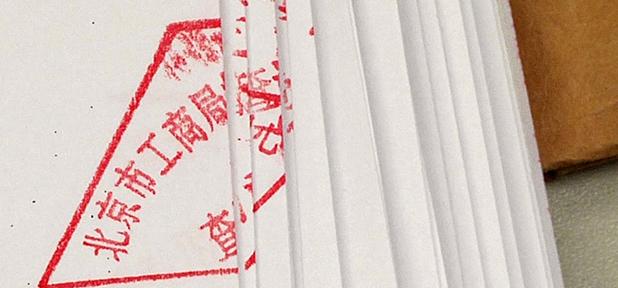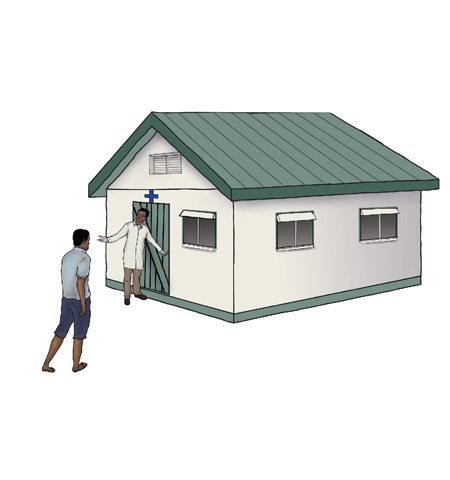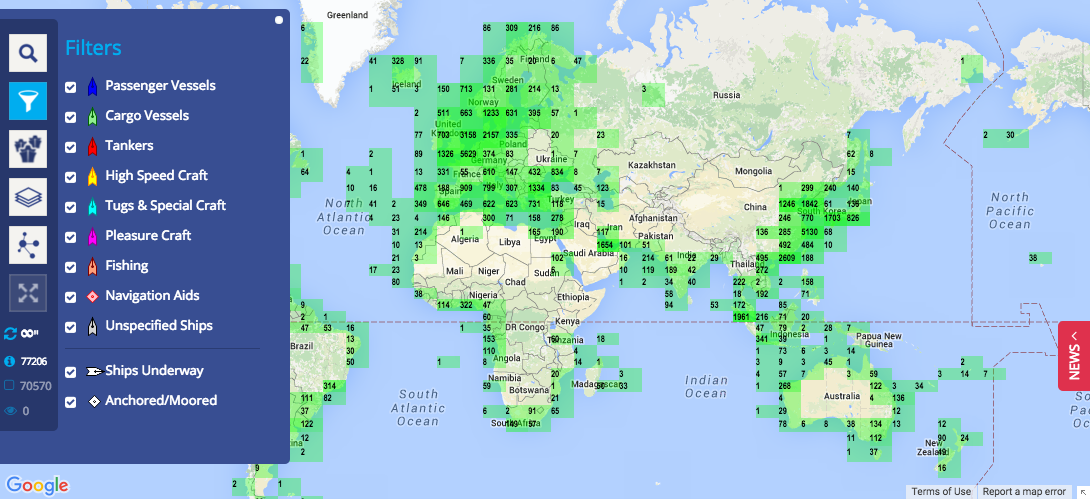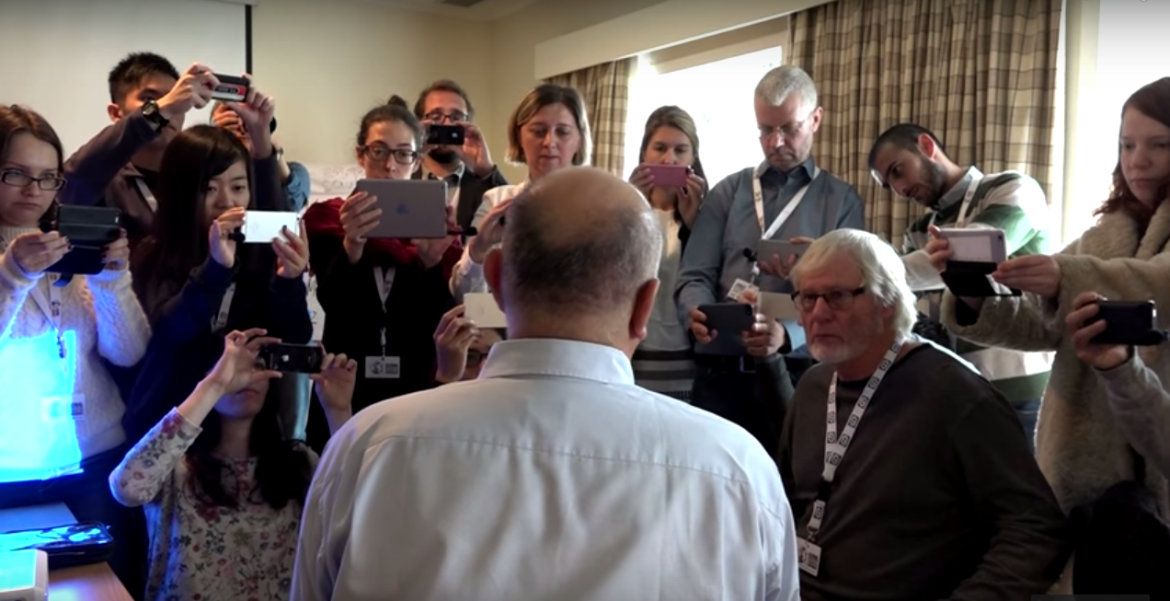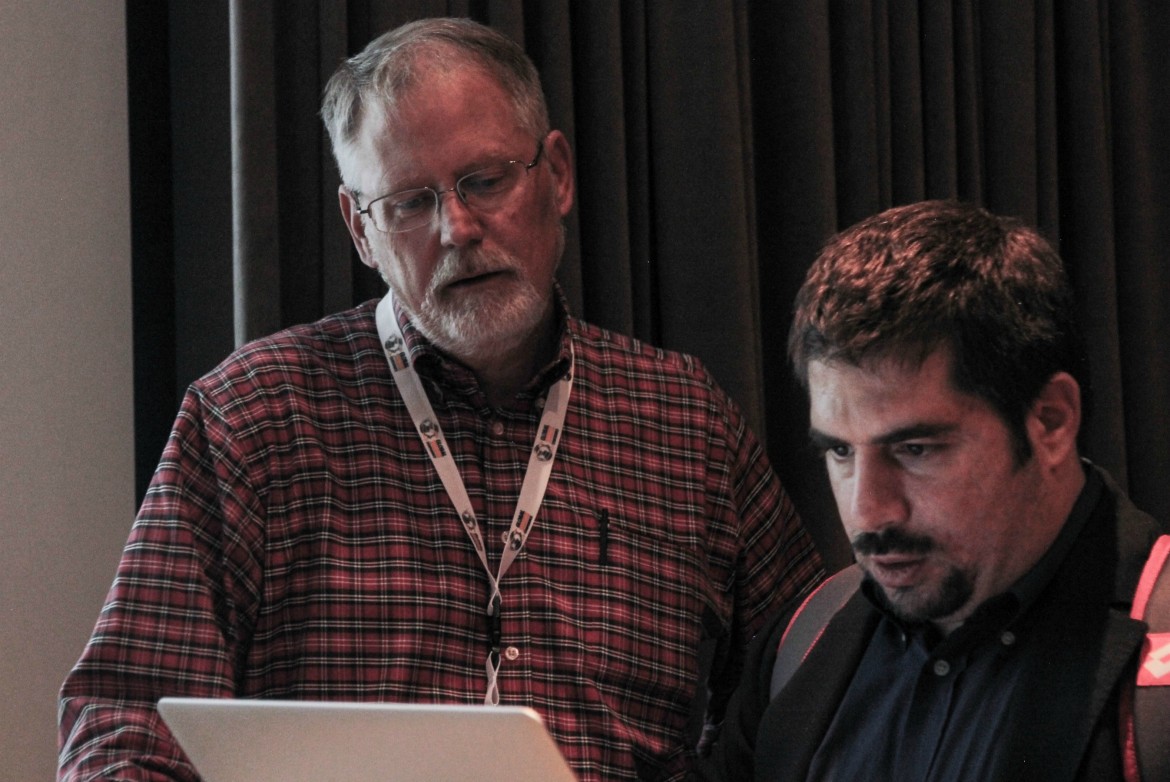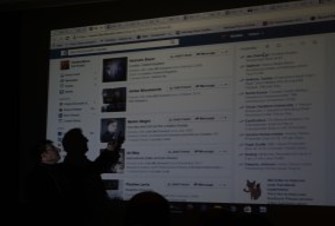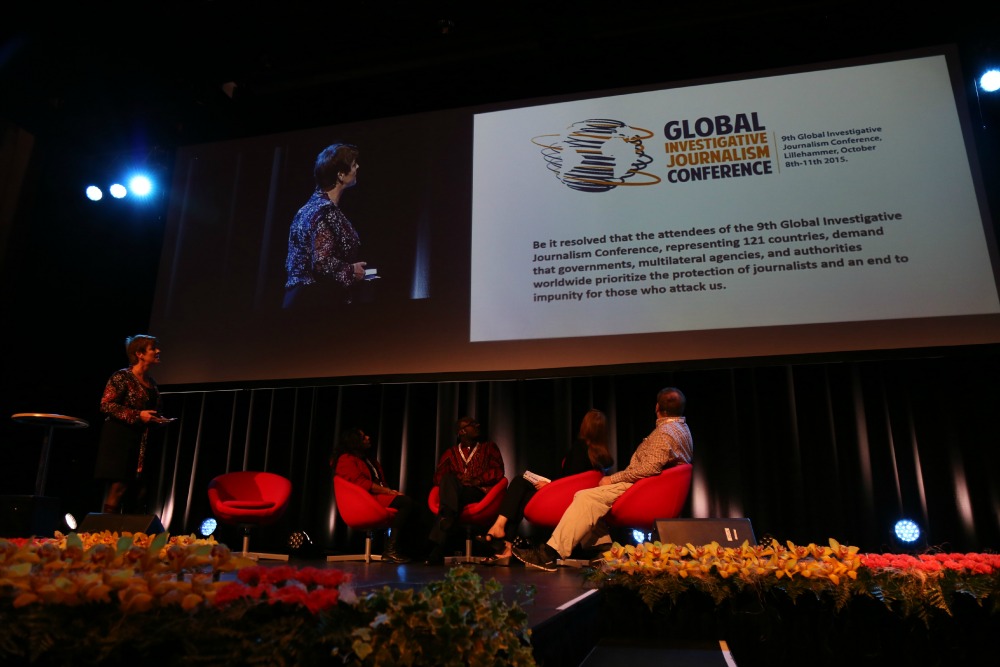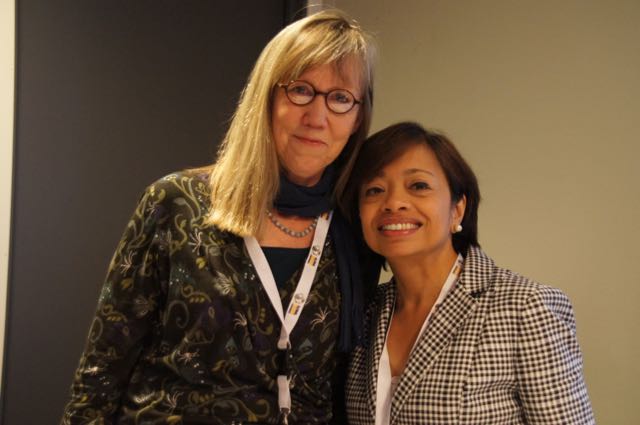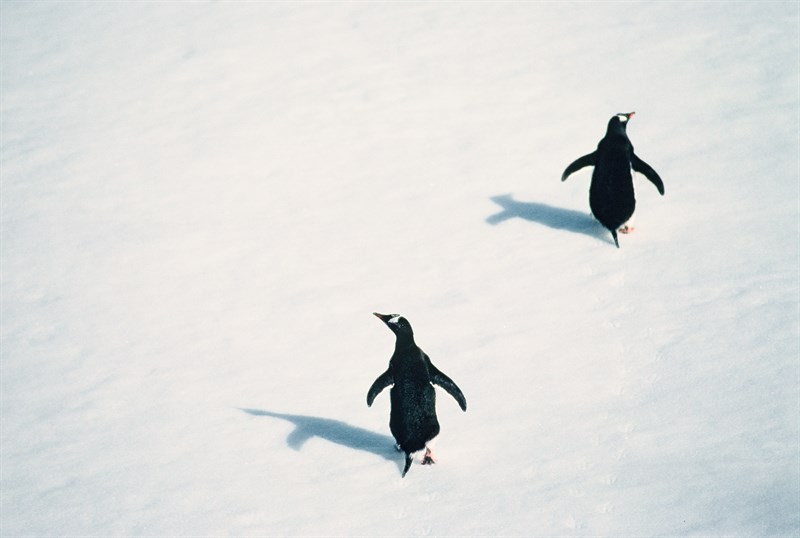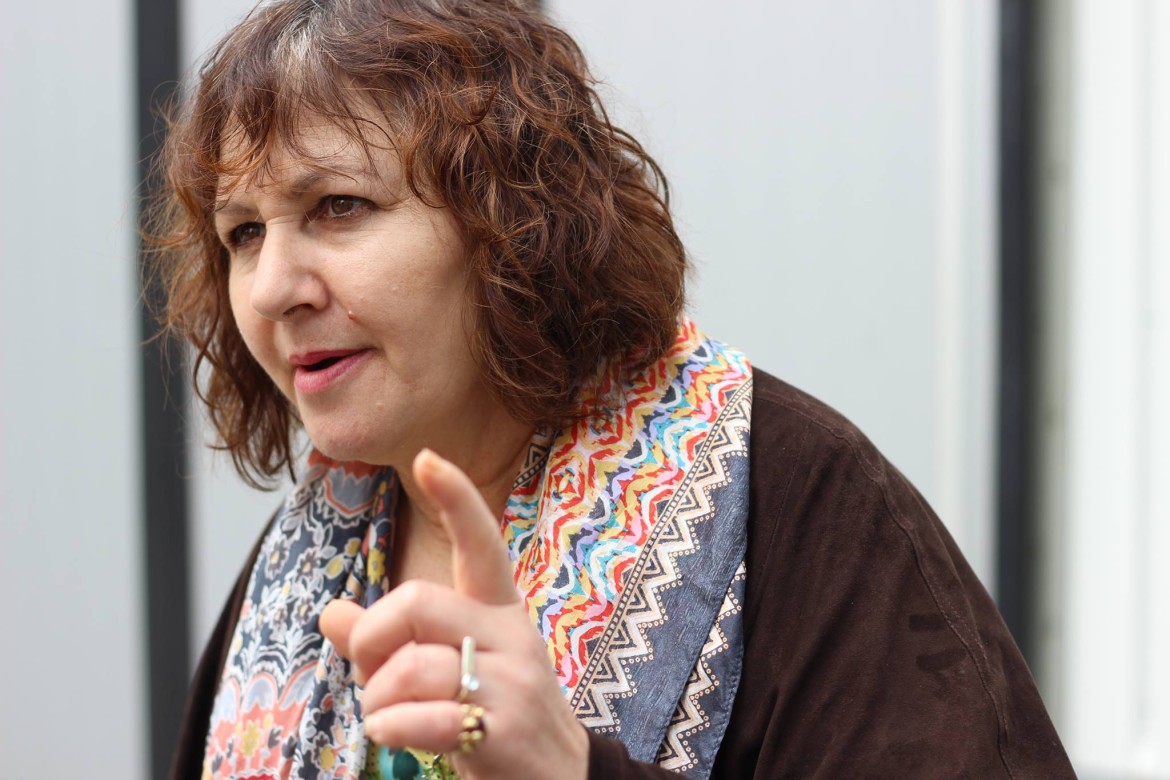The Organized Crime and Corruption Reporting Project (OCCRP) “Unholy Alliances”, winner of the Global Shining Light Award at the GIJC, unveiled the link between Montenegro’s government and organized crime. “Montenegro is a Mafia state, it is facilitating and helping the organized crime,” said OCCRP’s Miranda Patrucic.
Top 10 Research Tools for Investigative Journalists
|
How do you research thoroughly, save time, and get directly to the source you wish to find? Editor and Cofounder of InfoDOCKET Gary Price, and Research Editor for Investigations at The Intercept Margot Williams, shared their Top 100 Data Research Tools. Overwhelmed with information; we asked Williams and Price to refine their tools and research strategies down to a Top 10.
News
How to Mojo: Using Mobile Phones for Reporting
|
Journalism increasingly involves using mobile phones and attendees got three hours of intense instruction at the MoJo Master Class at the Global Investigative Journalism Conference in Lillehammer. Ivo Burum, Australian journalist, author and award-winning television producer, taught the workshop in which the participants learned basic camera filming, sound recording, and editing on smartphones.
News
How To Create a Secure Leaks Platform
|
The hint that spawned an investigation into Italian police officer Dino Maglio, over accusations he had drugged and raped young female travelers, transpired over Italy’s first whistleblowing platform: Irpileaks, based on GlobaLeaks Whistleblowing Software. Maglio allegedly lured women to his home by using the popular online hospitality exchange couchsurfing.com. “An alleged victim came across the platform and sent the leak,” Alessia Cerantola, board member and reporter for the Investigative Reporting Project Italy (IRPI) told a room of two dozen journalists at the 9th Global Investigative Journalism Conference in Lillehammer, Norway. “This is a good indication that leaks are working,” Cerantola said. The leak sparked a year-long investigation unveiling at least 14 other young women from around the world who shared similar stories about an Italian police officer who used the website, resulting in a unique transnational collaboration between news publications.
News
Google Expert’s Top Research Techniques
|
Has your editor ever told you to write a piece about something you know nothing about? No problem. With a few simple tricks, you can become an expert on almost anything.
News
Using Facebook To Investigate
|
Photos. Friends. Likes. Facebook contains countless amount of information. BBC’s internet investigations specialist Paul Mayers disclose the secret, simple strategies to dig into the world’s most popular social network.
News
Declaración de GIJC15 sobre la Seguridad de los Periodistas
|
En la sesión plenaria de la novena Conferencia Global de Periodismo de Investigación, que se realizó del 8 al 11 de octubre en Lillehammer, Noruega, se debatió cómo los periodistas están combatiendo los ataques en su contra en todo el mundo. Después de escuchar casos de estudios de colegas en Angola, Azerbaiyán, Malasia y México, periodistas de 121 países aprobaron la siguiente declaración.
News
Using Hypotheses and Timelines
|
Trainers Mark Lee Hunter and Luuk Sengers offered ways to begin and carry out investigative reporting during two sessions at the Global Investigative Journalism Conference. Their first session was Using Hypotheses: The Core of the Investigative Method and the second was Mastering Timelines: The Road to a Successful Project.
News
Working with Students: Learning by Doing
|
Are muckrackers born or made? The question was asked by Sheila S. Coronel, academic dean at Colombia University’s Graduate School of Journalism, in the session Investigative Journalism with Students.
News
Grants for Environmental Investigative Journalism
|
GRID-Arendal, the Center Collaborating with UNEP, and SKUP (Stiftelsen for en Kritisk og Undersøkende Presse) are offering 2 grants of NOK 25,000 for environmental investigative journalists working globally on the issues of organized environmental crime for the year of 2016.
News
Interview: Leslee Udwin, on the Power of Filmmaking
|
Leslee Udwin, an Israeli-born British filmmaker, was raped when she was 18 years old. Appearing recently at the Global Investigative Journalism Conference in Lillehammer, Norway, the 56-year-old director and actor recalled how making the 2015 documentary “India’s Daughter” – the story of the 2012 gang rape of a 23-year-old women in Delhi, India – stirred emotions she thought she had processed long ago.
